‘Russians Will Still Ask The West To Pay For Their Taxi’
22- Dzmitry Bandarenka
- 14.10.2023, 22:45
- 46,096
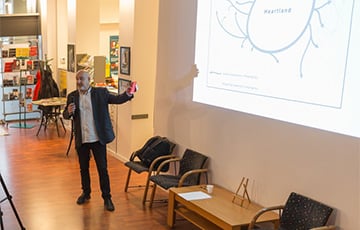
It's time for Belarusians to make their geopolitical choice.
On Saturday, October 7, in Warsaw, coordinator of the European Belarus civil campaign Dzmitry Bandarenka gave a lecture on the topic “Geopolitics of Belarus in modern conditions.” The opposition politician spoke at a meeting of the open foreign Seym of the Razam Solidarity Movement.
The website Charter97.org provides a transcript of his speech.
“What is the Heartland, and how Mackinder’s ideas influence Belarus”
In the 70s in the USSR, Russia held the first place in terms of population, Ukraine was second, Kazakhstan was third, Uzbekistan was fourth, and Belarus was fifth. And the difference between Belarus and Uzbekistan was small: 9-something million here and a little more in Uzbekistan.
Currently, 36 million people live in Uzbekistan. They say that in Belarus it is 9 million, but I think that in reality it is already closer to 8.
Geopolitics is a science or a method of knowledge, such a popular word, it is used quite often by politicians, including Belarusian ones, but not everyone knows its meaning. And I also used this word for many years without knowing what it was about.
Thanks, by the way, to our enemy Alexander Dugin, I learned more about geopolitics, because he published a book that some call the “Mein Kampf of Russian Leadership.” This book is “Fundamentals of Geopolitics and the Geopolitical Future of Russia.” But why was it interesting? This book contained many primary sources, world geopolitics — British, Swedish, German, American and so on. It was possible to find out something. After that, I read dozens of books on geopolitics, and I particularly liked the works of Halford John Mackinder.
This is a British author who is considered the main pillar of geopolitics as a science. Many authors later polemicized with him, agreed, disagreed, but his influence was colossal not only on the development of this science, but directly on events. Because Mackinder was the Triple Entente representative in Denikin's headquarters, and had great influence on the division of the four empires that collapsed as a result of the First World War. This is a very unusual person. And we, Belarusians, residents of Eastern Europe, know the quote from Mackinder, who said: “Whoever dominates Eastern Europe dominates the Heartland. Whoever dominates the Heartland dominates the world island (this is Eurasia and Africa), and therefore dominates the whole world.”
And so, you see, the map we are familiar with, Belarus is located right in Intermarium. And the First World War was actually fought over these territories.
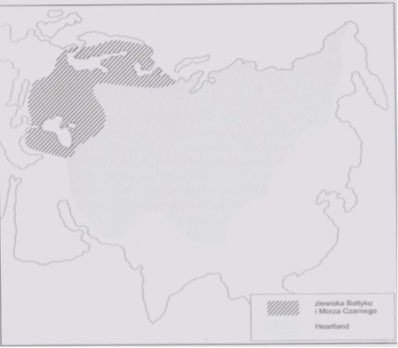
And we see that today some are talking about the Third World War, and it is also taking place over these territories.
Mackinder's idea of the Heartland, the “land in the heart”, the “middle land”, was that there were areas in Eurasia that had no access to the Atlantic Ocean, the Indian Ocean, or the Pacific Ocean. And these territories are river basins that either ended in inland lakes (like the Caspian Sea) or had access to the Northern Ocean.
This area is roughly called the Heartland.
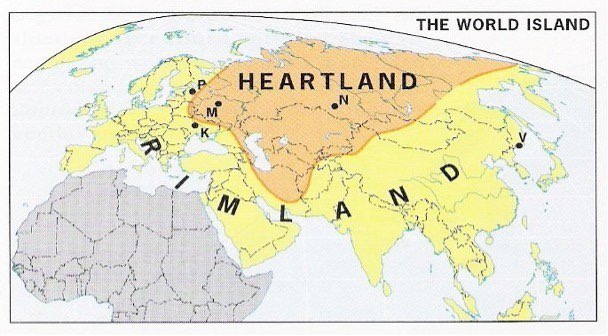
Mackinder said that this is a very convenient territory, it is easy to attack from it to all other corners of Eurasia, and it is very difficult for maritime states to reach it. The key maritime state for many years was England, then Britain. And he said that the peoples who live in the Heartland initially have an advantage over everyone else. Mackinder believed that historically it was always the case that when in the Heartland (this is a zone of steppes, semi-deserts to a large extent) there was not enough food, there was not enough food for horses and camels, for livestock, the climate changed, there was a drought, people quickly mounted camels and horses and from the Gobi Desert could easily reach the territory of modern Hungary, where there are also steppes.
Mackinder wrote that this is a law of nature. Attacks on China usually came from the Heartland, where there is a zone of monsoon rains, there was enough humidity and there was a strong civilization. In India, despite the fact that the Himalayas were covered, it was possible to infiltrate from Iran, as well as in the Middle East, where there was little water and people learned to live with it. Although there was Mesopotamia, the most ancient civilization. Of course, there were attacks on Europe as well. As for Europe, these were the Huns, Avars, Turks, Bulgarians, Mongols. And then Mackinder says that the main beneficiary of the Heartland was Muscovy, and then the Russian Empire. As a Soviet boy, I was always taught that we, Soviet people (Russian people), were under the yoke of the Mongol-Tatars for many years, how bad it was.
But from time to time poems like those of Alexander Blok popped up in the school curriculum:
“Yes, we are Scythians! Yes, we are Asians! With slanted and greedy eyes.”
After “perestroika,” books appeared by such a popular poet as Lev Gumilev, who is considered one of the neo-Eurasians, and he sincerely said: “And we are the Horde! We, Russia, are the Horde”. He stated this honestly.
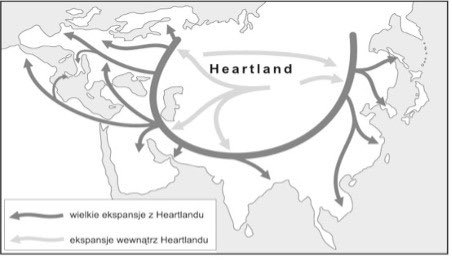
It turns out that back in 1904, Mackinder, in his work “The Geographical Axis of History,” said that Russia is the successor to the Mongol Empire, and this Heartland is located in Russia.
Let's look at today's situation. I analyzed the growth and decline of population in the Heartland countries, 12 countries, as well as in Europe, Belarus, Ukraine from 1960 to the present day. It turned out that the population of Belarus grew 1.1 times, and is now falling. In Russia it grew by 20 million, mainly due to the Caucasus republics and migration. The population of Ukraine has practically not grown. The population of the Baltic countries has declined. But the population of Uzbekistan has grown 4 times. The population of Tajikistan has grown 4 times. The population of Iran, which is also part of the Heartland, has quadrupled. The population of Kazakhstan grew more than twofold, but we know that half of them are not Muslims. There has been a very huge increase in the population in Azerbaijan, by approximately 3 times. In Kyrgyzstan — 4 times. Does Mackinder's Law work?
And if we look, from 2010 to 2020 the “lower path” was used, Iran put pressure on Iraq, and the migration crisis began in Europe. People rushed along the old routes through the Balkans to Europe, to Germany.
Now there is war in Ukraine. Look, the Black Sea steppes have always been a path of expansion for these peoples. Maybe this is the third way, we see that migrants have gone. They were brought in by plane, but they say that the last migrants who are breaking into Poland and Lithuania are already coming from Russia.
This does not mean that these people are bad or somehow different from us, we are also migrants today in Poland. But these are people of another civilization, we are simply recording a fact. We remember that when the Huns marched on Rome, a movement of peoples began. There were Goths, there were Vandals, under pressure from the Huns they went to Rome, went to Gaul. Today, hundreds of thousands of Belarusians have left their country, and this is the result of pressure from the Heartland. Mackinder's Law is in effect. Because in three cases it definitely is, and we don’t know, maybe Sweden and Finland asked to join NATO faster because they understand that they might have problems.
Look, we know that the Aral Sea has dried up, that Tajikistan has huge disputes with Kyrgyzstan and other neighbors over water, because Tajikistan is building hydroelectric power stations, the water does not flow down. And there is an idea that the collapse of the Soviet Union occurred precisely because of the population explosion in the Heartland. Moscow could no longer provide work and food to dozens of millions of Soviet Muslims. But the project of transferring northern rivers from the Arctic Ocean to Central Asia turned out to be very expensive and failed. Then they said that this was nonsense and why do it, but this was an attempt to provide water to the region where the greatest population growth was occurring.
“Lukashenka simply failed the issue of national security”
I said that Belarus’ entry into the European Union and NATO would be inevitable. Because, look, today in Russia, according to various sources, there are from 2 to 4 million citizens of Uzbekistan alone (in total there are more than 12 million foreigners). They work there, many have already started families, settled down. Imagine, a significant part of the population of that Uzbekistan, which was at the same level as us, is already in Russia today. If some kind of armed conflict occurs in Central Asia, we will receive this migration flow, including through Belarusian territory. It will be millions of people. We do not have a law on readmission with Russia, and the residents of Kyrgyzstan, Uzbekistan, and Tajikistan are not as demanding as the residents of African and Arab countries who are eager to go to Germany. If these people come to Belarus, they will see that they can live and work there. Perhaps we will need a workforce, but when it will be 3-4 million people of a different culture, a different religion, what shall we do with it? Lukashenka simply failed the issue of national security, the safety of the country.
Today the country, which is part of Eastern Europe, is in the Eurasian Union, in fact, in the Eurasian Military Union. We will need to get away from this. In this sense, Lukashenka violated the Belarusian Constitution, which states that Belarus strives for the status of a neutral state. But since he violated it, then I think there is no point in becoming a neutral state for Belarus. Because all the time we were told: “Finlandization of Belarus”, “Finlandization of Ukraine”, when Finland was a partner first of the Soviet Union, then of Russia, but Finland calmly joined the European Union, and now it is ahead of Sweden and is part of the Euro-Atlantic Union.
Street protests in Belarus as a geopolitical factor
I also wanted to raise the following question: what should we, Belarusians, do? Those who are actually under occupation within the country and abroad. There is a basic conflict in geopolitics between the countries of the Land and the countries of the Sea. It is believed that the countries of the Sea (and this is the United States of America, Great Britain) are democratic countries that live off maritime trade. And there are continental countries about which Russians speak: “neo-Eurasians.” The same Dugin says that their path is not democracy, but ideocracy, that is, in fact, a totalitarian state, perhaps an Asian despotism. And this conflict exists. There were wars and weapons were always used to fight on land and to fight at sea. And then airplanes appeared, the war moved into the air, then there were missiles, and space. And today they say that geopolitical confrontation is occurring in all areas. In the information sphere, in television, in the radio sphere, on the Internet, in the field of culture.
And Belarus may have retained its independence and identity precisely thanks to journalists and the media, because in the field of media, Belarusians still, especially with the advent of the Internet, read independent Belarusian publications, recently watch videos on YouTube and there, in my opinion, we have advantage over regime media and Russian ones. Today, being abroad, almost no one prevents the Belarusian media from continuing their work and influencing the consciousness of the Belarusian people, and Belarusians from having the opportunity to read other sources of information than Russian media or Lukashenka’s media. And this struggle is happening today, and may happen tomorrow.
I would also like to say that, oddly enough, in Belarus, street protests are a geopolitical factor. I belong to the trend of those people who understood the importance of street actions. In politics and geopolitics, only force counts. Either armed force or proxy force. When Freedom Marches took place in Belarus, clashes with the police took place, and everything was heading towards us being absorbed by Russia, the Russians wondered whether they should enter Belarus, since they were still fighting a war in Chechnya. And often the beneficiaries of street protests in the geopolitical sense were people who did not prepare for these protests, were afraid, and bypassed them. For example, Aliaksandr Milinkevich. I just know how the Square 2006 was prepared; he, of course, later showed courage, but at first he did everything so that this Square would not happen. Then the protests were suppressed, but Aliaksandr Milinkevich received political legitimacy in the West. He spoke very good French and Polish. He met with the presidents of a number of countries, and unlike today’s leader, he was an experienced person, he was a teacher, he had very good appearances in the media: interviews with BBC, Euronews, and so on.
Aliaksandr Milinkevich in the West said that the guarantor of the independence of Belarus is Aliaksandr Lukashenka. I talked to European politicians, they asked: “What a weird leader you have, he travels around the world and says that it is necessary to help your dictator.” It was a fact of life.
Then in 2010 there were protests, but the person who won the elections (I’m talking about Andrei Sannikov, he made it to the second round) and other candidates ended up in prison, but there was a geopolitical gain for Belarus. New educational projects appeared, the European Humanities University in Vilnius received a lot of resources, then there was a program under which a thousand Belarusian students would receive a scholarship of 1,000 euros during their studies. And I think that these people will someday return to Belarus, and I met these people who studied under this program. At the same time, a lot was done in Poland for Belsat, Charter’97 was invited as a website, and other media were welcomed.
In 2020, again we found ourselves in a situation where a person who said: “I will not call for protests. I’m afraid of this,” as a result, became the beneficiary of these protests. I think it’s not so bad that Sviatlana Tsikhanouskaya meets with people in the world at a very high level, travels, the topic of Belarus is there, it’s just that the results could be great. But without the protests nothing would have happened.
Remember 2015, the fake Karatkevich, supposedly an oppositionist, people voted as there was no alternative, but there were no protests, and she did not become a geopolitical factor.
“Pay for our taxi”: Russia repeats the fate of the USSR”
To summarize, I want to say that the theory of the great Halford Mackinder works, unfortunately. We need to take it into account. In order for Belarus to preserve its state, to survive as a nation, it will be necessary to leave the Eurasian empire and become part of Europe and part of the Euro-Atlantic community. Belarusians, even in today’s not very favorable conditions, being in Belarus and especially abroad, can continue their activities in order to remain Belarusians and be at a low start, because the situation can change at any moment.
I survived the collapse of the Soviet Union, no one expected this, Russian troops were much further away: Soviet troops in Berlin, Mongolia, Cuba, Vietnam, military bases in Syria. But it all ended up falling apart and they turned to their enemies, as they said in one movie: “Pay for our taxi.”
Pay our military who will leave Germany, Poland, Czechoslovakia, Hungary. Give us “Bush legs”* because we have nothing to eat. I think it will be a little different, but this outcome will be inevitable for Russia. Because what caused the start of the war? Russia is hopelessly behind its geopolitical competitors. If it was once equal to China in an economic sense, today it is 1/10-1/12 of the Chinese economy, 1/15 of the United States economy, and if we compare the NATO countries and Russia, then this is already 1/30. Plus constant pressure from Central Asia.
Today, Russia is gradually changing from an Orthodox state to a Muslim-Orthodox one, which could lead to a conflict of civilizations. Another geopolitician, Hungtinton, spoke about this, and precisely because the majority of migrants are in the capital cities and regions of Russia. This pressure is coming, one of the reasons for the attack on Ukraine was that Russia wanted to gain new lands, get new slaves, new citizens. But today we see that the Baltic Sea has become an internal lake of NATO, and the same Russian military fleet, which stood quietly in Sevastopol for years (even during the Maidans), has now for some reason risen and its whereabouts are unknown. They say partly in Novorossiysk, partly in Feodosia. These are already geopolitically catastrophic results of the war for Russia.
“First — the EU and NATO, then — the Baltic-Black Sea Union”
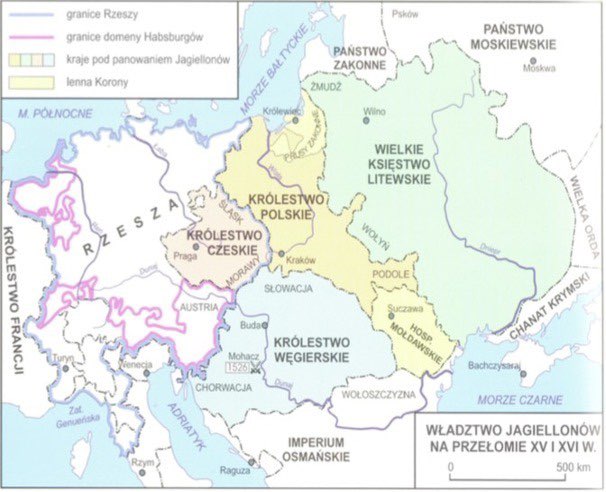
The Baltic-Black Sea Union, the European Union or NATO? This is a map of the states ruled by the Jagiellonian dynasty at the end of the 15th and beginning of the 16th centuries. Then in the Grand Duchy of Lithuania there was an independent ruler from the Jagiellonian dynasty, his brother was the king of Poland, another brother was the king of the Czech Republic and Hungary, which included Croatia. And we see that the states where the Jagiellons ruled were dynastic ones, as in the Middle Ages there were no states based on nationality. From Mozhaisk to Dubrovnik there were states where the Jagiellons ruled, most of these states were Slavic, although this does not fully apply to Hungary, but it included part of Croatia. And this is actually the same Three Seas that we are talking about. But then history decided differently; it were the Habsburgs that became the dominant dynasty, unfortunately, not the Jagiellons. Although we know that in the royal courts of the whole of Europe today there is Jagiellonian blood. Of course the fact that it has always been like this, the three seas, can please our pride. Here it goes — the ABC (the region located between the Adriatic, Baltic and Black Seas — edit.)
But the question is who will pay for the Baltic-Black Sea Union. Because Ukraine is eager to join NATO and the EU, the rest of the countries that we would like to see as part of the Baltic-Black Sea Union are already there. And, for example, I know that the leaders of Estonia, when they were told that Estonia would become part of the Baltic-Black Sea Union (this came from some Ukrainian politicians), said: “No. For us, the priority is the European Union and NATO.” Of course, perhaps this idea will be realized, but when Belarus, together with Ukraine, becomes part of the European Union and NATO, and the Baltic-Black Sea Group appears there, as the Visegrad Group exists today, or the Weimar Group manifests itself in politics.
Therefore, I say that we must join the European Union and NATO, catch up with our neighbors, and switch to military standards. Because what standards do our defense enterprises apply to produce weapons? If they produce Russian weapons, then we will remain part of the Eurasian Empire.
“NATO forces may enter Belarus”
In the near future, the prospects of Belarus do not look good, because any conflict in the Caucasus or Central Asia will lead to a flow of refugees. I want to stress that the danger is indeed very serious. For example, the famous American geopolitician, strategist, and politician Zbigniew Brzeziński, who, unfortunately, is already deceased, predicted that before the attack on Ukraine, Belarus would be the first to be captured, and the West would do nothing. This was his prediction. Thank God, Ukraine took the first blow, but what could happen to Belarus is a very pressing question.
And when I am discussing all this with Andrei Sannikov, my friend, I say: “In general, it’s not bad that Tsikhanouskaya travels around the world, meets people.” He says: “But if Putin takes over Belarus, will the West do anything about this situation? Will such a weak leader, who did not show herself during the revolution, be able to do something in a different situation?” We had great hopes for the Kalinouski Regiment, specifically for the political part of the Kalinouski Regiment, that they could become a sort of a “de-Gaulle” center. The guys are fighting, many people died, they are heroes, but their leaders turned out unable to form a military-political center, which is simply vital in our situation. But I hope that at the worst moment there will be a unification of all forces that will be ready to act, and this means defending Belarus with lethal force. There is also a point that, under certain conditions, we may have to behave differently. I believe that at some point NATO forces (like the KFOR peacekeeping force) may enter Belarus.
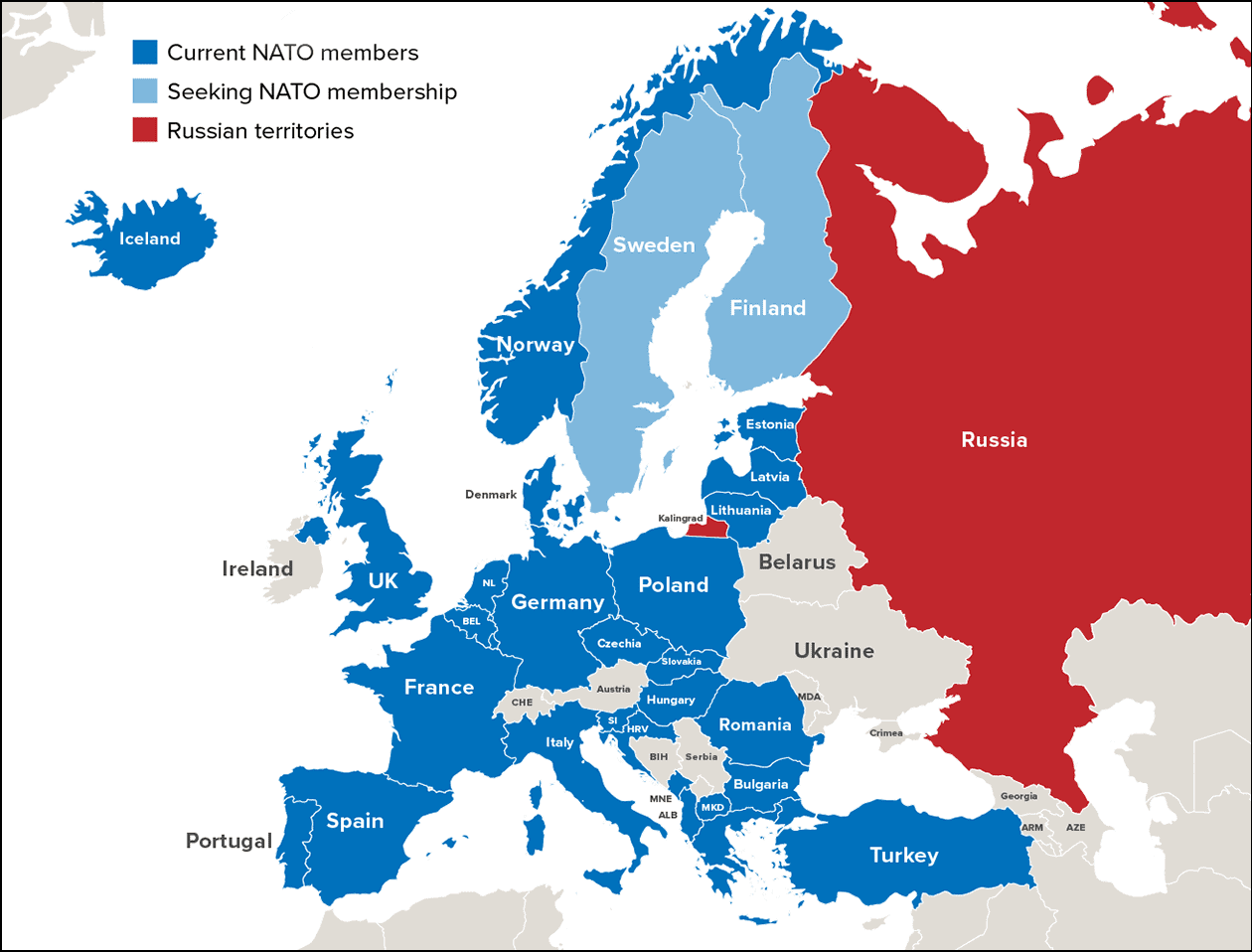
But this work must be done. And the situation is very, very dangerous today, I don’t know what will happen in 30-40 years. If Belarus becomes normal, we join the European Union, NATO, and put missiles on the border, then perhaps it will be like in the time of Stefan Batory, who repulsed the hordes of Ivan the Terrible and threw them back beyond the Smolensk Gate. For 70 years, Russia did not take one look in our direction. It dealt with the Urals, Siberia and the south. Perhaps we will be able to stop this offensive together (as part of the West, as part of Europe) today, and the situation will be different. But there is big concern for the fate of our country.
*“Bush legs” (Russian: ножки Буша, romanized: nozhki Busha) is a prevailing term in the post-Soviet states that denotes chicken leg quarters from the United States.










